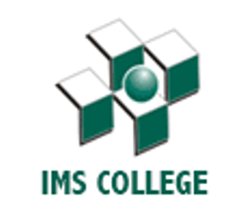Syllabus

MODULE DESCRIPTION FORM DEPARTMENT OF NAVAL ARCHITECTURE, OCEAN & MARINE ENGINEERING MG 845 SYSTEM AVAILABILITY AND MAINTENANCE
|
|||
|
Module Registrar: Dr Iraklis Lazakis |
Taught To (Course): MEng NA & ME, NA with HPMV, NA with OE and MSc in Marine Engineering | ||
|
Other Lecturers Involved: N/A |
Credit Weighting: 10 |
Semester: Semester 1 |
|
| Assumed Prerequisites: None | |||
| Educational Aim | |||
 Class Aims: Class Aims:
This module provides an insight into the qualitative and quantitative systems’ reliability techniques as well as maintenance methodologies with particular emphasis to the maritime industry. The course will give students the ability to formulate, solve, report and present a comprehensive maintenance strategy based on the application of reliability and criticality analysis and assessment tools. The module will also provide students with an insight of the day-to-day operations of ships as well as explore and present features related to ships dry-dockings, inspection, repair and maintenance scheduling, regulatory regime as well as practical case studies on the above. |
|||
| Learning Outcomes | |||
| The standards set for each criterion per Module Learning Outcome to achieve a pass grade are indicated on the assessment sheet for all assessment.
On completion of the module the student is expected to be able to: LO1: Understand and apply various reliability software tools, concepts and strategies with application to the maritime/marine industry. LO2: Be aware of the different maintenance methodologies and their application in the maritime field and carry out maintenance strategy case studies. |
|||
| Syllabus | |||
The module will teach the following:
|
|||
| Assessment of Learning Outcomes | |||
| Criteria
Student learning is judged on the basis of their performance on two assessment methods: LO1
LO2
|
|||



